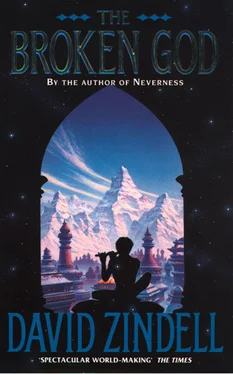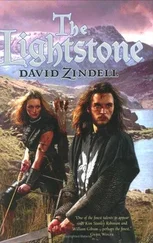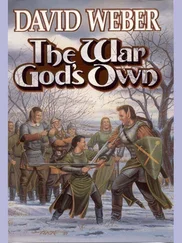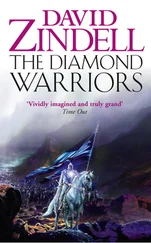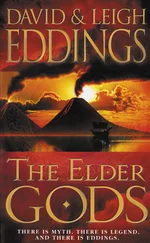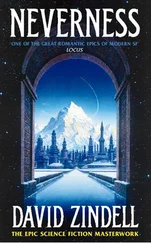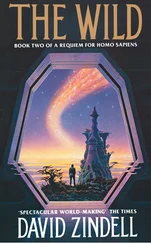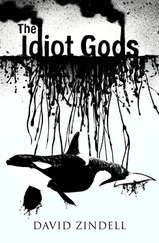That evening, they began burying their tribe. They worked as quickly as they could, stripping the bodies naked and rubbing them with seal grease from toe to forehead. Danlo knew that it would be cold on their spirits’ journey to the other side of day, and the grease would help against the cold. Loading the bodies on the sleds and hauling them up to the burial grounds above the cave was gruesome, exhausting work. Some of his near-sisters had died many days earlier, and their flesh had run dark and soft as rotten bloodfruit. It would have been less horrible to remove the bodies all at once and place them in the snowdrifts where they would freeze hard and fast. But there were bears in the forest and packs of wolves; as it was, they had to gather bunches of dead wood to keep the cave’s entrance fires burning, to keep the wild animals at bay. Of course the sled dogs were familiar with fire, and they had little fear of it. And so Danlo and Soli decided to spend a couple of days hunting shagshay while most of their people awaited burial. They had to flay the great, white, fleecy animals and cut them up for food, or else the starving dogs might have gnawed off their leashes and gone sniffing for carrion in the cave. After that, they returned to work. One by one, they placed the bodies on the icy, treeless burial field. They oriented them with their heads to the north.
They heaped boulders atop each body; they built many stone pyramids to keep the animals away and to remind them that each living thing must return to the earth from which it is born. Their labour took ten days. There were too few boulders close to the cave, so they had to tie the dogs to their traces and drive sleds down through the forest to an icy stream where they found many smooth, rounded rocks. And then back up to the burial ground again with sleds full of rocks, back and forth for many trips. When they were finished at last, they found some anda bushes and picked orange and red fireflowers to place atop the graves. And then they prayed for the dead, prayed until their voices fell hoarse and their tears were frozen sheets over their cheeks; they prayed far into the night until the cold off the sea ice chilled their bones.
‘ Mi alasharia ,’ Danlo said one last time, and he turned to Soli. ‘It is done, yes?’
They began walking down through the dark graves, down through the snowdrifts and the swaying yu trees. There were stars in the sky, and everywhere snow covered the forest. After a while they came to the stream where they had built a little snowhut to live in while they did their work. Never again would they sleep in the cave. ‘What will we do now?’ Danlo asked.
‘Tomorrow, we will hunt again,’ Soli said. ‘We will hunt and eat and continue to pray.’
Danlo was quiet while he stared at the cold snowhut that would provide shelter for a night, or perhaps many nights. And then he said, ‘But, sir, what will we do ?’
They crawled through the tunnel of the hut. The tunnel was dark and icy, and barely wide enough to allow Soli passage. The main chamber was larger, though not so large that either of them could stand up without breaking through the top of the little snow dome. In the half-darkness, Danlo moved carefully lest he knock against the snow blocks that formed the hut’s walls. He spread his sleeping furs atop his bed of hard-packed snow. Soli added chunks of seal blubber to the oilstone, a bowl of scooped stone which was always kept burning, however faintly. The blubber melted and caught fire, and Danlo gazed at the small pearly flame floating on a pool of dark oil. Soon the curved white walls of the hut glowed with a warm, yellow light.
‘Yes, what to do now,’ Soli said. The oilstone grew hotter, and he began boiling water in a small clay pot. It was his habit to drink some blood-tea before sleeping.
Danlo thought he was a strange man, at heart a wild man like himself, or rather, like he would be if he ever became a man. He felt an affinity to this wildness. Hadn’t Soli’s great-great-grandfather left the tribe a few generations ago to journey across the southern ice? Hadn’t Soli and his now-dead family returned from the fabled Blessed Isles with fantastic stories of air so warm that the snow fell from the sky as water? It was told that Soli had once journeyed across the eastern ice to the Unreal City where the shadow-men lived in mountainous stone huts. Danlo wondered if these stories were true, just as he wondered at the secret, wild knowledge of numbers and circles that Soli had taught him. He thought Soli was a mysterious, wild man, and then a startling idea came to him: perhaps this is why the slow evil had avoided him, too.
Danlo scooped some frozen seal blood out of a skin and dumped the blackish, crystalline mass into Soli’s pot. He said, ‘We will have to journey west to Sawelsalia or Rilril, won’t we? We have many far-cousins among the Patwin, I have heard it said. Or perhaps the Olorun – which of the tribes do you think will welcome us, sir?’
He felt uncomfortable talking so much because it was unseemly for a boy to talk so freely in front of a man. But he was uncertain and afraid for the future, and in truth, he had always liked to talk. Especially with Soli: if he didn’t initiate conversation, Soli was likely to remain as silent as a stone.
After a long time, Soli said, ‘To journey west – that may not be wise.’ He took a long drink of blood-tea. Danlo watched him hold his cup up to his mouth; it seemed that his eyes were hooded in steam off the tea, and in secretiveness.
‘What else can we do?’
‘We can remain here on Kweitkel. This is our home.’
Danlo held his hand to his eyes and swallowed hard against the lump in his throat; it felt like a piece of meat was stuck there. ‘No, sir, how can we remain here? There are no women left to make our clothes; there are no more girls to grow into wives. There is nothing left of life, so how can we remain?’
While Soli sipped his tea silently, Danlo continued, ‘It is wrong to let life end, yes? To grow old and never have children? To let it all die – isn’t that shaida , too?’
‘Yes, life, shaida ,’ Soli said finally. ‘Shaida.’
Something in the way Soli stared into his tea made Danlo feel a sharp pain inside, over his liver. He worried that Soli secretly blamed him for bringing shaida to their tribe. Was such a thing possible, he wondered? Could he, with his strange young face and his wildness, bring the slow evil to the Patwin tribe as well? He felt shame at these thoughts, then, felt it deep in his chest and burning up behind his eyes. He tried to speak, but for once, his voice had left him.
Soli stirred his lukewarm tea with his forefinger. The two fingers next to it were cut off; the scars over the knuckle stumps were white and shiny. ‘To the east,’ he said at last, ‘is the Unreal City. Some call it the City of Light, or … Neverness. We could go there.’
Danlo had slumped down into his furs; he was as tired as a boy could be and still remain among the living. But when he heard Soli speak of the mythical Unreal City, he was suddenly awake. He was suddenly aware of his heart beating away as it did when he was about to spear a charging shagshay bull. He sat up and said, ‘The Unreal City! Have you really been there? Is it true that shadow-men live there? Men who were never born and never die?’
‘All men die,’ Soli said softly. ‘But in the Unreal City, some men live almost forever.’
In truth, Soli knew all about the Unreal City because he had spent a good part of his life there. And he knew everything about Danlo. He knew that Danlo’s blood parents were really Katharine the Scryer and Mallory Ringess, who had also lived in the City. He knew these things because he was Danlo’s true grandfather. But he chose not to tell Danlo the details of his heritage. Instead, he sipped his tea and cleared his throat. And then he said, ‘There is something you must know. Haidar would have told you next year when you became a man, but Haidar has gone over, and now there is no one left to tell you except me.’
Читать дальше
